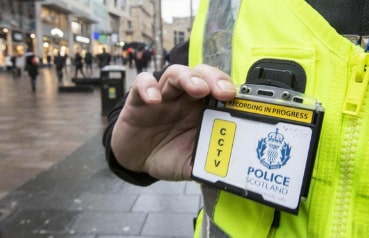The five year plan for digitization by Police Scotland features real-time biometrics analytics, body-worn video cameras and other advanced technologies.
The plan was presented to the Scottish Police Authority Board this week, ahead of its expected approval. It includes the adoption of augmented reality, digital identity and access management, and digital evidence sharing capabilities. A modality for the real-time biometrics capability is not specified, but the document notes DNA and fingerprints among the current technologies the strategy is intended to compliment.
The adoption is presented as a gradual, considered process, rather than a rush for the newest tools.
“In terms of emerging digital technologies such as, but not limited to, Artificial Intelligence (AI), Machine Learning (ML) and Facial Recognition it is essential that these are only considered for introduction into operational policing after [emphasis in original] the appropriate Data Ethics assessments have taken place,” the paper reads. “The Digital Strategy references and emphasises [sic] this process in order to provide necessary assurance to key stakeholders.”
The strategy is underpinned by six pillars, or “enablers,” including the recognition of data as an asset, data ethics, cyber resilience, “people,” sustainability and investment and prioritization.
The use of body worn video cameras is expected to increase public trust, as 85 percent of respondents in a public consultation told Police Scotland that they would do so.
Upgrades of data and advanced analytics capabilities, along with forensic services transformation, are planned for completion in 2027, according to the plan.
The “Digital Strategy Strategic Outline Business Case” was presented by Chief Digital Information Officer Andrew Hendry. It specifies that the plan requires £398.7 (US$500.7 million) in funding, though that total includes some money already earmarked for technology investments.
Much of the document is dedicated to planning for the resources Scottish police will need to crack down on the growth in cybercrime and online fraud in the country.
The proposal has been approved, reports the Daily Mail.
Article: Police Scotland digital strategy seeks real-time biometrics within 5 years
